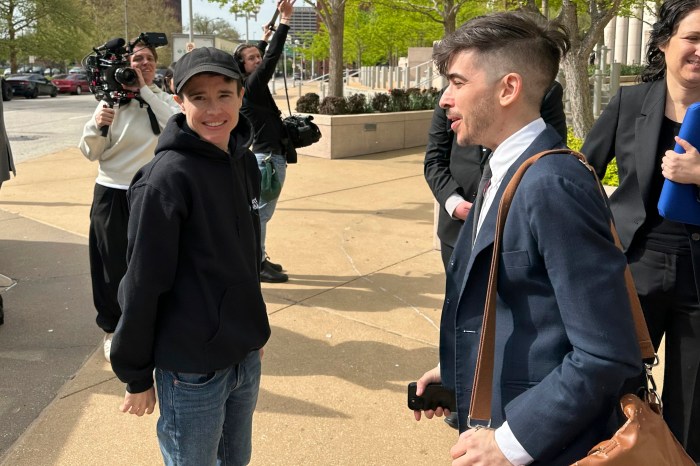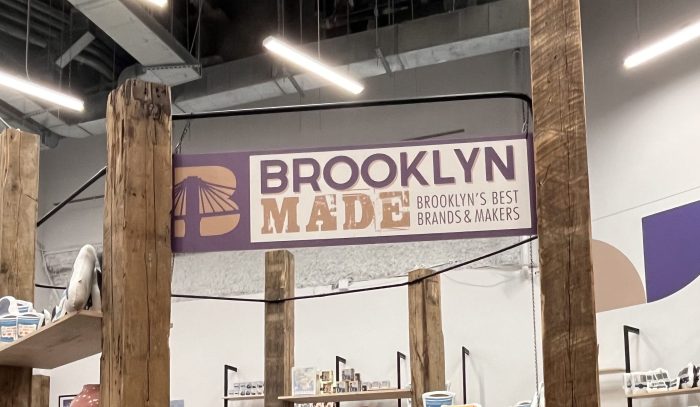LGBT activists Gift Trapence of Malawi, Juliet Mphande of Zambia, and Chesterfield Samba of Zimbabwe at a December 10 reception hosted by IGLHRC. | MICHAEL LUONGO
“Education, empowerment, investment, investment, investment” is what LGBT communities in Africa need assistance on, said Juliet Mphande, a human rights activist from Zambia, at a December 9 press briefing hosted by the International Gay and Lesbian Human Rights Commission.
During the second week of December, IGLHRC is facilitating visits to New York by LGBT advocates and human rights defenders from several dozen nations in Africa, Asia, Latin America, and the Caribbean, who are meeting with officials from the US, the United Nations, and other advocacy groups. The December 9 briefing brought together roughly a dozen African activists who reflected on their civil rights struggle and what they look for in terms of support worldwide.
Mphande and her fellow activists emphasized that rather than showy signs of international solidarity what they look for is assistance sensitive and responsive to the efforts they are spearheading on the ground in their own cultures.
In New York to meet US, UN officials, roughly a dozen discuss assistance they need from abroad
“Never make a comment without sending an email to one of the people here, who are among the people who are suffering,” said Reverend Kapya Kaoma, an Anglican priest from Zambia now based in Boston who wrote “Globalizing the Culture Wars: US Conservatives, African Churches, and Homophobia.” Kaoma also said, “It’s an insult to Africa for people in the US to speak out on Zambia without speaking to Juliet. Stop speaking for Africa; let Africa speak for itself.”
Two high-profile statements from Western leaders on behalf of LGBT Africans were discussed — and, to at least a degree, found wanting by the activists.
In June, President Barack Obama, in a joint press conference in Senegal with that nation’s president, Macky Sall, said, “I don’t believe in discrimination of any sort.”
“It would have done a lot if he had called Senegal’s president to talk about his concerns,” Kaoma said. “In the US context, it works to be public. Not in Africa.” Western political leaders, he emphasized, should respond to the needs of local LGBT communities, not activists in their own countries.
Two years earlier, British Prime Minister David Cameron suggested that his country’s foreign aid might be curtailed for countries enacting severe anti-gay legislation, such as the bill considered in Uganda that includes the death sentence among its penalties.
“All of a sudden, we’re tagged as agents of re-colonization,” said Friedel Dausab, a Namibian who works in HIV prevention.
“We are not asking the West to cut aid,” Zambia’s Mphande said. “LGBT people are Africans, too.” Britain can exert greater influence, she and others noted, through its leadership of the Commonwealth of Nations, to which many African countries, once colonies, belong.
Dausab said that Britain could also contribute to challenging the notion that gay rights is a colonial import. In fact, he and other activists pointed out, both anti-sodomy laws and Biblical injunctions against homosexuality are the legacy of British rule on the continent.
The activists emphasized that the question of whether anti-gay attitudes are indigenous to African culture is a very live one on the continent. One leading Nigerian evangelical scholar, Kaoma noted, has emphasized that some African cultures, prior to the colonial era, made a place for people with same-sex orientations.
“Africa is generally tolerant of diversity,” said Chesterfield Samba, the leader of Gays and Lesbians of Zimbabwe. “But leaders have politicized LGBT and other groups” to preserve their power, often by diverting popular attention from their failures in governing.
Their divisive tactics, Zambia’s Mphande said, make the public education task in front of LGBT activists daunting. Within most African societies, she said, “Sex is not discussed. So the sexualizaiton of gays is the problem. ‘How do they have sex?’ is what people think about.”
According to Zimbabwe’s Samba, African leaders often point to the writings of right-wing evangelical leaders, such as Scott Lively, to justify their homophobic views.
“An American goes to Zambia, Uganda and tells lies and the embassies don’t say, ‘No, it’s not true,’” he said. “Embassies should say those views don’t represent American views and they don’t reflect science. Africans respect science, but there is no counter-narrative.
Western embassies could do a better job of engaging local activists and looking to their lead on how best to advocate on gay issues, the Africans said. With the entrée they enjoy with African political leaders, Namibia’s Dausab said, diplomats from the US, UK, and elsewhere can express their concerns, and they can also try to “create spaces” where local activists can get access to their own leaders.
Just days after the death of South African freedom fighter and former President Nelson Mandela — whose passing was marked by a moment of silence at the press briefing — Kaoma, the Zambian Anglican priest, noted that Mandela and his colleagues in the African National Congress completed their educations early. Saying that because they often lack supportive families, “LGBT Africans are among the least educated” people there, Kaoma challenged Western activists to “bring them to the US to get a college education.”
He also argued that the intense scrutiny on Uganda because of the effort to pass a draconian anti-gay law there has “overshadowed” often more dire conditions in other African nations. “Uganda is now much safer than Zambia,” he said, “but there is a preoccupation with Uganda.”
One day after the press briefing by the African activists, they and IGLHRC’s guests from Asia, Latin America, and the Caribbean gathered for a Roundtable Strategy Session on International LGBT Rights at the UN. In remarks opening up that session, Samantha Power, the US ambassador to the UN, recalled that up until a few years ago, IGLHRC was denied consultative status at the world body. At that time, the UN had just beat back efforts to eliminate “sexual orientation” from a resolution condemning summary executions. That resolution now includes language on “gender identity,” as well.
Condemning Russia’s new anti-gay law for being “as outrageous as it is dangerous,” Power said, “To criticize the criminalization of LGBT status is not cultural imperialism. And to deny gays and lesbians the right to live freely — and to threaten them with discrimination or even death — is not a form of moral or religious puritanism. It’s in fact barbarism.”



































